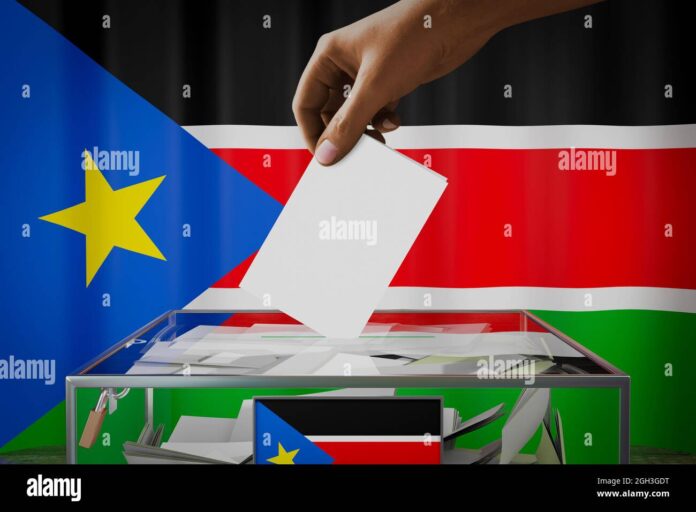By Ginaba Lino & Rose Achiro
Some Citizens of South Sudan have expressed frustration following the decision by the Revitalized Government of National Unity (R-TGoNU) to extend the road map that will delay general elections until December 2026.
On Monday, Catholic Radio Network spoke with residents of Juba to gauge their reactions to the extension of the election timeline, which many see as a setback to much-needed political change.
Luka Aban Nyaidiing voiced his disappointment, stating that the extension has dashed the hopes of many citizens who viewed the elections as a chance for transformation.
“You know this move from the Government is disappointing. People were looking at the elections as a way to bring change, especially with the devaluation of our currency. Our currency has been weakened against the US dollar, and the only hope for the citizens was that the elections would bring about change.”
Aban described the repeated extensions as an indication of the government prioritizing its interests over the needs of the people. He lamented that the lack of political will among governing parties continues to deepen the suffering of South Sudanese citizens.
Mary Ajak, another citizen, said many people were eager for elections, as the country’s deteriorating state has made life increasingly difficult, particularly for women and children.
“We were hoping if the election was held this year, it would have been good, so we could see some change in the country. But now that they’ve extended it, there’s nothing to say, but God will help us until the time comes. I wanted to change because the situation is very bad, especially for women—we are suffering.”
Joseph Gar Abuok shared similar concerns, expressing that the election delay will negatively impact citizens’ lives. He had hoped the general elections would improve his current dire conditions.
“Extending the elections, as a citizen of South Sudan, I see a negative effect on us. A citizen should always feel happy in their nation, but that’s not happening. I had hoped the elections would take place this year as originally planned.”
Gar added that the elections could have been an opportunity to remove non-performing parliamentarians and ministers and replace them with leaders who care about the people.
Dr. Abraham Kuol Nyuon, a political analyst and professor at Juba University, cast doubt on the success of the extension, noting the government’s inability to implement the peace process in the past six years fully.
“If there was no guarantee of implementing the peace agreement for the last six years, then what is the guarantee that it will be implemented in just two years?”
Dr. Kuol highlighted that the extension could bring both positive and negative consequences. On the one hand, it could prevent conflict by allowing top officials to maintain their positions. On the other, it could prolong the suffering of citizens. He warned that if political actors fail to deliver within the next two years, the 2026 elections may present a serious challenge for them.
He urged the government to prioritize establishing electoral institutions, expedite the constitution-making process, and improve infrastructure across the country to facilitate the electoral process.

